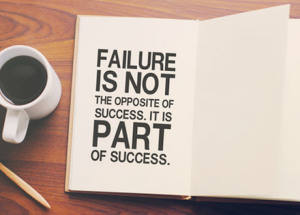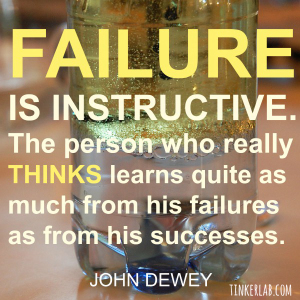The fear of failure is a major reason more people don’t start new businesses. The financial loss is bad enough but when it’s compounded by shame and regret, it’s amazing that anyone actually starts a business in the first place. It’s part of the reason why I believe entrepreneurs deserve far more credit than they get, not to mention the jobs they create for others and the taxes they generate for the benefit of everyone else.
However, there is good news for anyone trying to decide whether they should take the plunge or not. According to Jessica Stillman in this article on Inc.com, new research shows that people handle failure and embarrassment far better than they think they would.
Imagined failure is way worse than the real-life kind.
To come to this conclusion, a team of Dutch researchers told study subjects they were going to complete a series of tests in pairs, informing them that if they scored above a certain level, each pair would earn rewards. Half of the participants then predicted how bad they’d feel if they failed. The other half actually took the tests and, whatever their actual performance, were told that they were personally responsible for their team’s failure to earn the reward. How bad did they really feel, the researchers then asked them.
How good were the participants at guessing how bad failure would make them feel? In short, pretty terrible. Imagined failure apparently feels way worse than real-life failure.
“Forecasters overestimated how much guilt and shame they thought they would experience (as compared with the actual emotions reported by the experiencers)–this is a classic example of the intensity bias,” according to the British Psychological Society (BPS). What’s the intensity bias? “A recurring finding in psychology is that people tend to overestimate the strength of their future emotions,” explains BPS.
Failure might hurt a lot less than you think it will, but it still hurts!
Conor Foley


